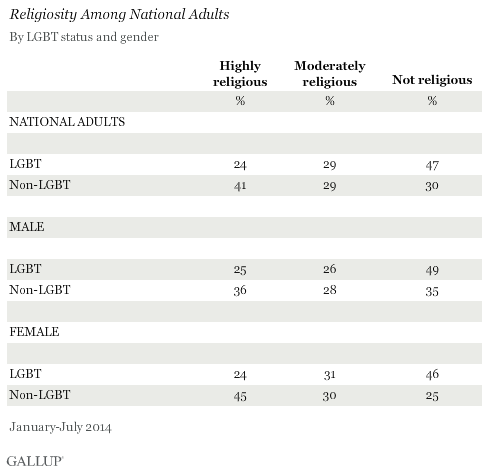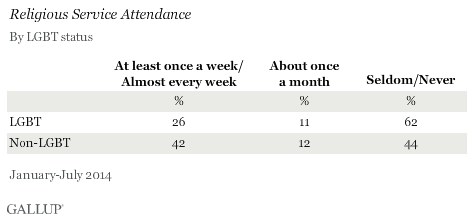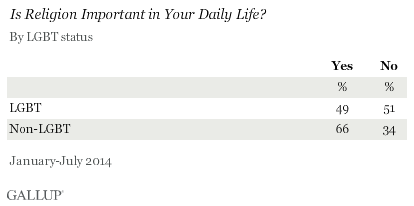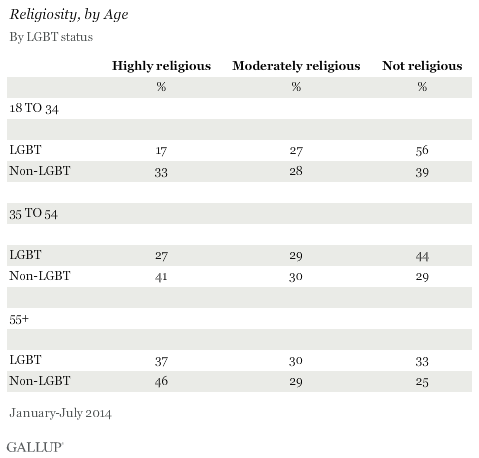
According to a recent study, members of the LGBT community in America are significantly less religious than those who do not identify as lesbian, gay, bisexual or transgender. The results of this study were based on over 104,000 interviews conducted from January 2 to July 31 this year and it included 3,242 adults who identify as members of the LGBT community.

Gallup categorizes Americans as extremely religious because 41 percent of them have said religion is an important part of their lives and they frequent religious services on a weekly or almost weekly basis. Thirty percent of Americans have been categorized as nonreligious because they do not think religion constitutes an important part of their lives and thus they rarely ever visit religious ceremonies. The remaining 29 percent of Americans have been categorized as moderately religious because they do consider religion important but do not necessarily attend services on a regular basis or do not consider religion important but still do attend services very frequently.

This study by Gallup revealed that LGBT and non-LGBT people differ on both aspects that comprise the religiosity classification. About 25 percent of LGBT individuals attend services on a regular basis as opposed to 42 percent non-LGBT individuals who do.

Similarly, even though 50 percent LGBT individuals said religion is important to them, the number was significantly lower than the 66 percent of non-LGBT individuals who said it was.

There are several explanations to justify the figures that were revealed in Gallup’s recent study. It is possible that LGBT individuals feel unwelcome in most congregations whose church policy, doctrine, ministers and parishioners condemn same-sex relations, which is why they not end up adopting the religion in the end. Another explanation is that LGBT individuals are more likely to be drawn to live in areas where religious practices are uncommon, which is why they are not particularly religious themselves.
Photo Credits: Wikimedia
